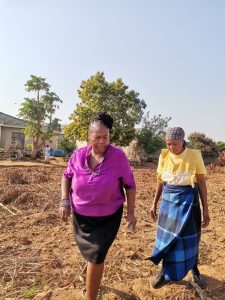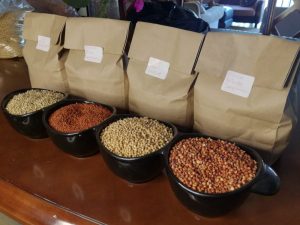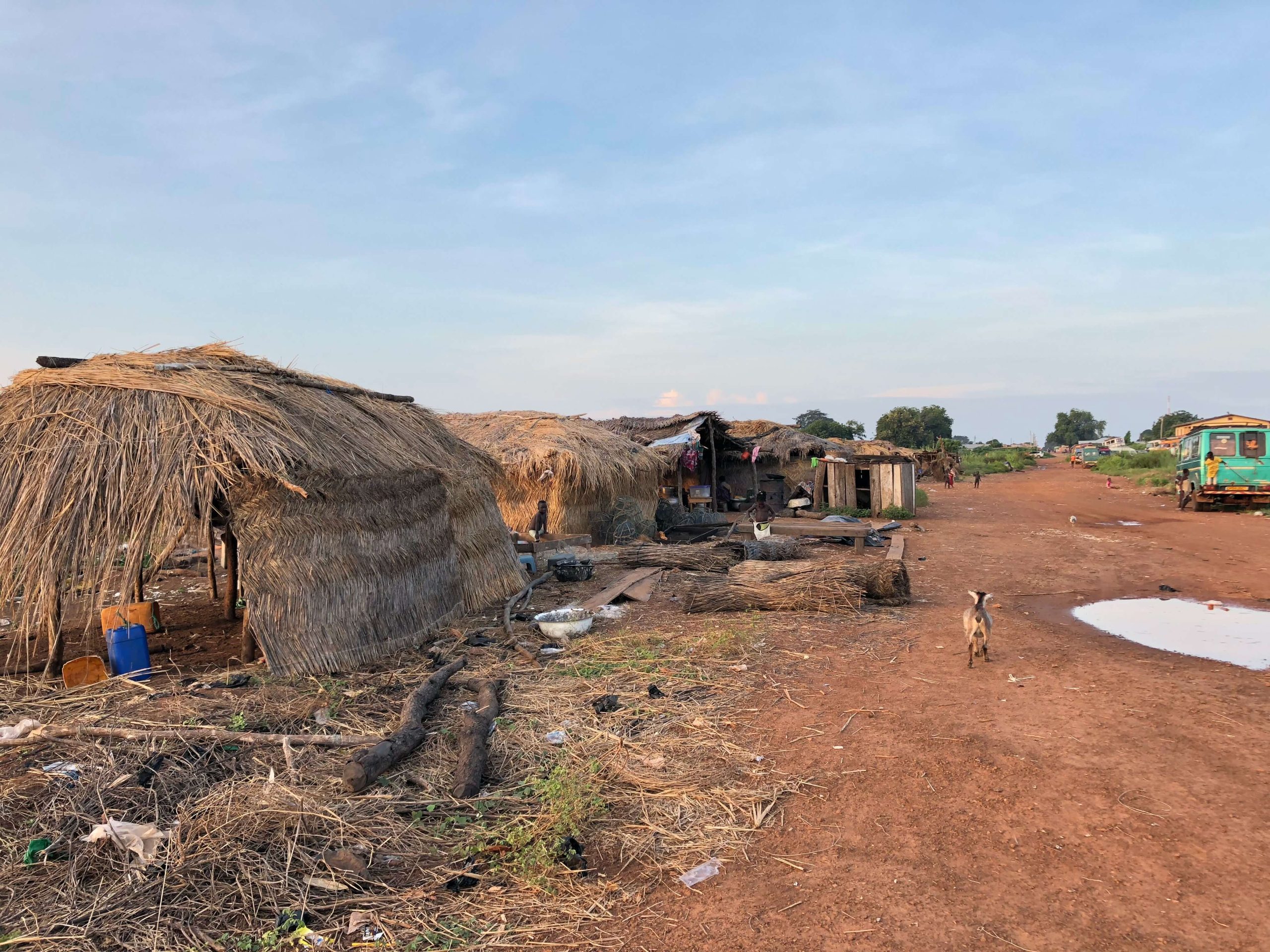Diary of a Village Girl: Creating Hope in my Community
I have always had the urge to go back home to Malawi and be part of the builders of my community and the country at large. Though born and raised in Zimbabwe by Malawian parents, my love for Malawi developed when I arrived there in 2004, still a child yet old enough to know good from the bad.
I instantly fell in love with an odd way of life in my parents' villages, both my mother's and father's sides. I fell in love with the country's innocence, the people oblivious of a life other than their way of living. Indeed, ignorance sometimes is bliss. I was raised, in my view, in an average home with running water, a bathtub, electricity, a stove, a fridge, and sleeping on a bed. I naively thought that this lifestyle was a common way of life for everyone everywhere across the world. Sleeping on a mukeka or African mat in my parent's village in Malawi was not a shock but a roller-coaster adventure for me. Fetching water was the most exhilarating experience. Carrying tons of buckets with my cousins and brothers, contrary to our small family way back in Zimbabwe, I was faced with many cousins in Malawi, an unfamiliar sight, but it was such a pleasure. We would take turns swinging the borehole wheel until we filled all the buckets.
Cooking was quite exciting, and mealtime was beyond enjoyable. We sat amidst more than 20 people near the kitchen, chit-chatting while we waited for the food to be served. We had to sit in groups, males separate from females. Just as the mothers comprised their separate group, so did the children. Each group had to be served from a communal dish according to their gender and age.
After three months of this pleasurable village experience, my father took me back to Zimbabwe. I vowed in my heart that I would return. Years later, the nudge to return to Malawi was still stirring in me. In 2014, a mature woman, I decided to relocate and work in Malawi. By then, I understood that some of the first pleasant experiences I had encountered resulted from lack and poverty. I worked in Malawi for eight months, only to be so disappointed by the new experiences of hardships. The people and the country were going through tough times due to poor governance and political misalignment. At that time, I did not find anything pleasant about my country, so I left despite my inward-burning desire to help.
Subsequently, in 2021, I mentally prepared myself for disappointment and discomfort. I went to live in Tukombo, my parent's village in Malawi's Northern region. This village comprises of Tonga-speaking people, one of the tribes that pioneered multi-party rule through Aleke Banda and are also known to be the most intelligent and educated tribe in Malawi.
I realised that my community needed help urgently. So, I contacted the Traditional Authority (TA) of the land to help and found out which areas needed immediate attention. To my shock, I was given a Bible of needs, and with no financial resources, I felt helpless and hopeless. However, although hopeless, I was confident that I could reach out to some of my trusted and valued friends with whom I had built trustful relationships over the years based on our common interests, spiritual foundation, or vision of building the Africa we want. It is an Africa with a prosperous future for the present and future generations.
I embarked on a solo journey of knocking on every one of my friend's doors for financial assistance, hoping to have a good response. Indeed, most of my friends fell head over heels without hesitation in extending their financial resources in helping to build my village while building the Africa we want, one village at a time. Yes, there have been a few exceptions whereby I had some emotional wrecking experiences. Some potential donors I approached thought that I shouldn't be "appealing" for financial assistance at this stage in my life and that I was a failure and an embarrassment to society. Therefore, I should have never reached out to them or shared the philanthropic request work I was doing. Nevertheless, through various resources and help from friends, we have managed to renovate the village court/office, helped construct a nursery block, bought chairs for the community court and distributed food parcels and clothes to the community. Once the news started reaching out to some of the people in the diaspora who shared the same passion for building or facelifting the community, the response to contribute multiplied tremendously. Many reached out to me and expressed their commitment to joining hands to improve the village.
I partnered with my fellow brothers and sisters from Tukombo, mainly based outside the country, to extend the existing clinic into a hospital. Each person would contribute as little as US$6. With all this being done with a couple of close friends, the most mind-boggling question comes to mind: How does the government of Malawi fail to deliver on the smallest of services when a small group of friends can bring change within a couple of months? Where does our government fail in service delivery? What are the priorities in the national expenditure, and what should they be?
Meanwhile, Tukombo village has diverse so-called development committees that convene countless meetings, with little or no tangible deliverables on the ground. Is it because of a lack of focus on the bigger picture regarding vision, genuine sense of duty, unity for purpose, or unity of purpose? Could this be attributed to a lack of a shared mindset, education, drive or enthusiasm to live well in Malawi?
Unfortunately, despite the continent's immense potential, there are similar heart-wrenching cases across Africa. The abovementioned drawbacks pose unsurmountable obstacles to true meaningful emancipation and economic freedom. But we must face these challenges and forge a more livable and prosperous Africa. Our experience in Tukumbo village must help us to create a hopeful community with successful tangible development goals.
Written by:
Cathrine Banda, Community Activist
Tukombo Village, Nkhatabay, Malawi
Mobile: +265 881 69 30 58
Email: cathrinetwabi@gmail.com
Siphiwe Sithole tells us about the idea that transformed her life
That I would become a farmer was just not on the radar. I did not see this coming. I trained as a journalist at Rhodes university and went on to do a postgraduate diploma in advertising and marketing. After that, I worked in different marketing and public relations positions for corporations and organisations.
In 2015, The Tony Elumelu Foundation accepted me to participate in their Entrepreneurship programme. I had an idea to grow food for African ex-pats living in South Africa. I understood that most people migrating are at the bottom of the pyramid. They are moving from one country to another for economic reasons. When they get into that country, they have to scramble for food. They don't have money to buy groceries for the whole month. They're literally looking for food on a daily basis. They are looking for fruit and vegetables they cannot get.
I come from Mpumalanga, close to the Mozambican border. When I lived in Cape Town I couldn't find things like cassava. Each time I would go to the neighbourhood market, I just could not find the stuff that I could relate to. The demographics of the country have changed. The demographics of certain regions have changed and yet what has not changed is what you are finding on our shelves.
African Marmalade is an African farming business that grows indigenous crops. We started it in late 2015 with the intention of growing food. When I went into business, I thought that, as a top performer in the corporate world, I would be able to hit a profit in six months, but it just took longer. The reality of climate change confronted me; I just did not have the way or reserves to deal with that as a farmer. Being self-funded was pretty tough. I was very cautious. I did not want to make loans to run the business. I had to drastically lower my standard of living. I could no longer maintain the same lifestyle that I had while I was working. 
Sometimes I struggle to even imagine my life before me going into farming. I keep saying, guys, 'What did I use to do? What was I doing on weekends? Because right now I'm happiest when I'm out in the field while before, you know, I would've been, oh, I've gotta go to the mall. I've gotta go to the salon.
Growing indigenous foods, I looked like a lunatic because I was doing something people didn't know. Whatever I planted, people came from the agricultural department, and they wouldn't understand why I didn't have rows and rows of the same vegetable, like spinach, cauliflower or zucchini. I was on less than 2 hectares, and there were more than 30 crops. That, to them, did not make sense. And I told them that you guys don't understand that before I can grow those things on a larger scale, I need to have the seed. And I cannot get the seed. If I need seeds, I would have to travel to different African countries. Or I have to apply for all sorts of import permits. So if I land my hands on a couple of seeds, I have got to grow those seeds for two or three seasons up until I've got enough to grow a hectare.We have our own seed bank that is quite extensive. We produce seeds for ourselves plus for other farmers and households. We are like a network; we keep a record of who we sell to and link people living in the same area as the seeds would have adapted to the environment.
Many people are waking up to indigenous foods, and we've seen many chefs within the culinary spaces that are embracing indigenous ingredients. When people have tasted the foods they've eaten in a lovely restaurant, it encourages them to ask, where do I buy this?
The challenge we have in South Africa, and I don't know how prevalent this is in other African countries: but if people grew up poor eating indigenous foods, they associate them with poverty. So, when you've got a job or a business, you are not going to be eating those foods; you are going to be eating your creamed spinach and brussel sprouts. And not foods that remind you of a time when you didn't have options. When people say,' I have bad memories of these foods, plus I ate too much while I was growing up.' My question is, 'So, do the Chinese ever get tired of eating fried rice and noodles? If they don't, why are you getting tired of eating your own food? The Italians never get tired of eating pasta, but they've been eating it from infancy. You go to India, people are eating Indian food.
We are eating things that don't have nutritional value or very little nutrients, and we are missing out on a lot of the nutrient-dense stuff that is good for us, that our DNA actually can process. A lot of people find that they are gluten intolerant. But they're not even aware, and they're busy eating bread made of wheat. And yet there are things like your cassava flour bread that they could be using and teff flour, that's gonna be gluten-free. There is less resistance and a quicker uptake once people know what some of these food items are good for. And it's part of us depoliticising the food because in South Africa, having lived deep under apartheid with people being segregated and living according to their different ethnic groups, people would say no to foods that other ethnic groups would eat. Once people know the health benefits, people are willing to embrace the foods. 
The introduction of malls in a lot of areas has made people think that their food can only come from a mall. They are being seen as a one-stop shop for everything. The pension sales points, where people receiving government grants would go once a month to receive their pension, were kind of neighbourhood markets. People would set up with an umbrella, which is not happening now with the automation of the system. We don't see those outlets where people can go out and buy. The sad thing is that neighbourhood markets are in the affluent areas not in the townships or settlements. What you are going to find are plaza shops that are not big on fresh food.
I would like to see more neighbourhood markets developing in different areas. I would like to see more people growing their own food. Literally, people being able to feed themselves and sell the excess to their neighbours and for us to broaden the basket of what we are eating.
I think we must eat our medicine. If you do not eat your medicine, if your food is not healing you, if your food is not nourishing, you are gonna spend the rest of your life on supplements. And if you are eating two or three meals a day, and yet you've got this medicine cupboard or your handbag full of medication, then there's something wrong with what you are eating. So change your diet and look at making it more indigenous. All the lifestyle diseases we have result from what we eat. You look at child obesity rates, auto-immune diseases, the increase in autistic cases and ADHD and all the other ailments people have. All of those things, you can actually trace them back to what people are eating. 
What drives me is getting people to connect and rekindle some of their childhood memories. When they walk through our fields and see what we are growing, it reminds them of their great grandmothers, their grandmothers, and their childhood growing up in whatever part of the country or the continent. When you see that spark, when somebody's face lights up and says,' Oh yeah, I know those beans. I don't even remember the last day I ate them. 'or 'Oh no. My Granny used to..., or when somebody says, you know what, the last time I ate this was when my mom was still alive.’ That just makes me so happy. To be able to say, I am really getting somebody to be in charge of their true self, with their emotions, because we have become a society where we are kind of burying our memories and just being on autopilot.
Personally, I've been able to reconnect. I've been able to get certain smells that remind me of something that happened while I was below the age of 10. It's just been that journey where I remember who I am and what I've missed or what I've lost and what I'm actually now recovering. I wouldn't trade my life for anything right now. I keep on saying, I think I had the perfect midlife crisis. and it sent me into farming.


